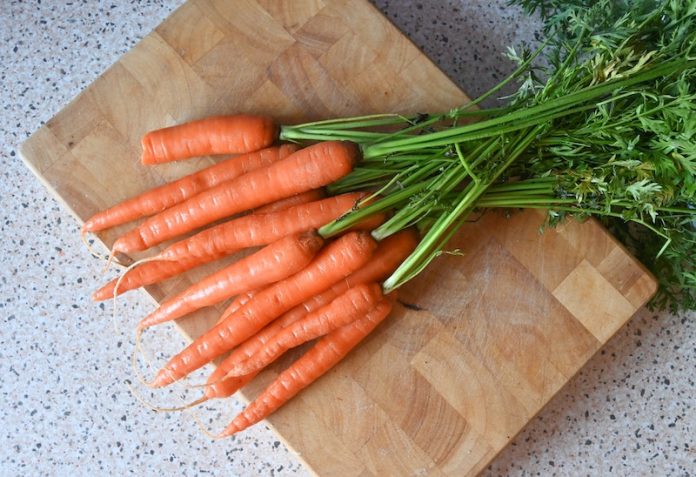
Carrots and Eyesight
You’ve probably heard it before: “Eat your carrots, they’re good for your eyes!” But is it true? Can eating carrots really help you see better? Let’s dive into the science and find out!
The Power of Carrots: What’s Inside Them?
Carrots are a pretty special kind of vegetable. They are packed with a substance called beta-carotene.
When we eat carrots, our bodies turn beta-carotene into vitamin A, a very important nutrient. Why is vitamin A so great? Well, it plays a big role in keeping our eyes healthy.
Beta-Carotene and Vitamin A: Eye Superheroes
Researchers have found out that vitamin A helps our eyes in different ways. It helps keep the surface of our eyes (the cornea) clear and healthy.
It’s also important for good night vision – that’s seeing things when it’s dark. Without enough vitamin A, people can have trouble seeing at night, a condition called night blindness.
Carrots to the Rescue?
So, can eating more carrots make your vision better if you have regular sight? Here’s the catch – carrots can help maintain healthy vision, but they won’t improve your eyesight if it’s already normal.
That means, if you already have a balanced diet and healthy eyes, eating a bunch of carrots won’t make you see better than 20/20, which is the best vision score you can get.
What Studies Say
Several studies have looked at how diet impacts eye health.
While no study directly shows that eating carrots improves vision in people who already see well, research does suggest a healthy diet full of foods with vitamin A, like carrots, can help prevent certain eye conditions.
For instance, a study found that people with a diet high in fruits and veggies, especially dark leafy greens and orange veggies (like carrots), had a lower risk of a condition called age-related macular degeneration.
This condition can cause vision loss in older people.
Not Just Carrots: Other Foods for Eye Health
While carrots are great for your eyes, they’re not the only food that can help. Other vegetables and fruits high in beta-carotene and vitamin A are also beneficial.
These include sweet potatoes, spinach, and kale. Foods high in other nutrients like vitamin C, vitamin E, and zinc, such as strawberries, nuts, and seeds, also contribute to eye health.
Conclusion: Carrots Are Good, But Don’t Forget a Balanced Diet
In conclusion, carrots are definitely good for your eyes, thanks to their beta-carotene content. But remember, eating carrots alone won’t turn you into a superhero with supervision.
It’s best to eat a variety of healthy foods to keep your eyes – and the rest of your body – in top shape.
So, go ahead, crunch into that carrot – your eyes will thank you!
Copyright © 2023 Scientific Diet. All rights reserved.








